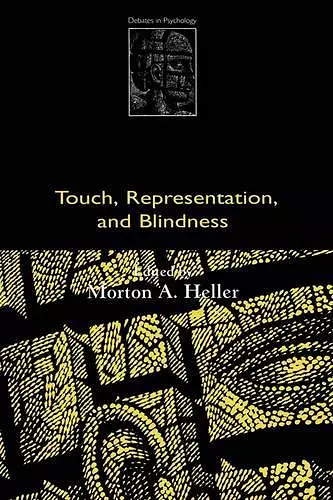Touch, Representation, and Blindness
Format:Paperback
Publisher:Oxford University Press
Currently unavailable, and unfortunately no date known when it will be back

Psychological studies of touch and blindness have been fraught with controversy. Within this field there remains an important theoretical divide. Many researchers have taken a cognitive approach to the study of touch and blindness, relating these to higher order processes, such as memory and concept formation. Others adopt a theoretical perspective, arguing that it not necessary to consider the 'internal representation' of the stimuli, when investigating touch - thus people make use of information from the physical biomechanical properties of their limbs as they assess the physical properties of objects. In addition, psychologists differ in the relative importance they place on the modality of sensory stimulation for subsequent perceptual experiences. Some psychologists argue that touch can do many of the things that are accomplished by vision, and claim that the mode of sensory stimulation is not critically important for perception, arguing that much information can be obtained through non-visual modalities. Others suggest that there are important consequences of a lack of visual experience, arguing for the importance of multiple forms of sensory input for conceptual development. New to the Debates in Psychology series, Touch, Representation, and Blindness brings together the leading investigators in these areas, each presenting the evidence for their side of the debate. An introductory chapter sets the theoretical and historical stage for the debate, and a concluding chapter draws together the different views and ideas set forth by the contributors, summarizing and resolving the discussion.
ISBN: 9780198503873
Dimensions: 234mm x 156mm x 14mm
Weight: 358g
236 pages